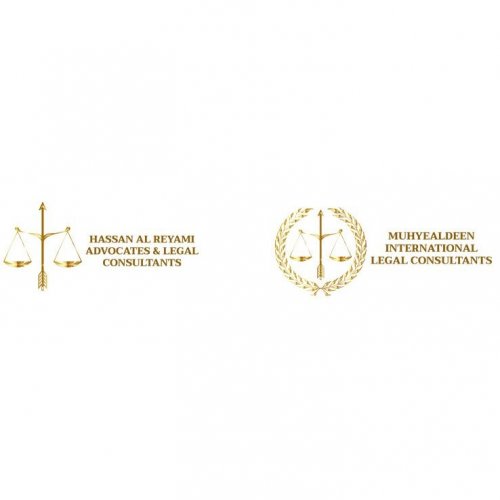Best Creditor Lawyers in Abu Dhabi
Share your needs with us, get contacted by law firms.
Free. Takes 2 min.
List of the best lawyers in Abu Dhabi, United Arab Emirates

The Black Robe For Legal Consultancy & Debit Collection
1 hour Free ConsultationAbout Creditor Law in Abu Dhabi, United Arab Emirates
Creditor law in Abu Dhabi is part of the broader UAE legal system that dictates the rights, obligations and legal protections for creditors and debtors. This area of law encompasses multiple aspects from loan agreements, security and collateral, bankruptcy, insolvency, to debt recovery. Legal practices in Abu Dhabi align with the Federal Law No. 9 of 2016 on Bankruptcy, which is designed to protect the rights and interests of both creditors and debtors in the event of insolvency.
Why You May Need a Lawyer
It is critical to seek legal assistance when involved in any form of debt situation. A lawyer specializing in creditor law can guide you through understanding your rights, drafting loan agreements, enforcing security, debt collection, or dealing with insolvency-related legal matters. They can also represent you, whether you are a creditor or debtor, in court if a dispute arises about a debt owed or bankruptcy case.
Local Laws Overview
Key aspects of creditor laws that are particularly relevant in Abu Dhabi include the establishment of the Committee of Financial Restructuring (CFR) to oversee and manage insolvency cases; approval of debt restructuring plans to prevent insolvency; specifications on the initiation of bankruptcy proceedings; a mandate for creditors to file their claims within a specific period; and clear directives on the distribution of debtor's assets as per priority of creditor's rights. Non-compliance with local creditor laws may result in severe legal penalties.
Frequently Asked Questions
What are the rights of creditors in Abu Dhabi?
Creditors in Abu Dhabi have the right to recover debts owed to them by a debtor. They also have the right to request the court to declare a debtor bankrupt if the debtor defaults on the payment.
What happens if a debtor files for bankruptcy?
If a debtor files for bankruptcy, their assets will be liquidated to pay off the creditors. However, certain assets are excluded from liquidation, such as the debtor's necessary household furnishings and supplies.
Can a creditor enforce a security interest in Abu Dhabi?
Yes. If a debtor defaults, a creditor can enforce the security interest, which may include taking possession or sale of the secured assets as per the agreed terms.
How can a creditor protect their rights in case of debtor's insolvency?
A creditor can protect their rights by filing their claim and participating in the bankruptcy proceedings. They may also object to the distribution of the debtor's assets if they believe it is skewed.
How do debtor and creditor laws balance in Abu Dhabi?
The local laws are designed to provide balance and fairness. They protect the rights of creditors for debt recovery whilst also ensuring the debtors facing insolvency are not unjustly pursued and have a chance for financial restructuring.
Additional Resources
The UAE Ministry of Justice and the local judicial department of Abu Dhabi provide comprehensive information on the laws, regulations, and amendments regarding creditor rights. It's beneficial to visit these institutions' official websites or offices for verified and updated information relating to creditor laws.
Next Steps
If you require legal advice in relation to credit laws, your initial step should be to consult with a lawyer or law firm specializing in creditor law in Abu Dhabi. They can provide personalized legal advice tailored to your specific circumstances and guide you on the ideal course of action. If involved in a legal dispute, hiring a lawyer ensures you have professional representation in legal proceedings. Remember, it is important to act promptly to safeguard your rights and interests.
Lawzana helps you find the best lawyers and law firms in Abu Dhabi through a curated and pre-screened list of qualified legal professionals. Our platform offers rankings and detailed profiles of attorneys and law firms, allowing you to compare based on practice areas, including Creditor, experience, and client feedback.
Each profile includes a description of the firm's areas of practice, client reviews, team members and partners, year of establishment, spoken languages, office locations, contact information, social media presence, and any published articles or resources. Most firms on our platform speak English and are experienced in both local and international legal matters.
Get a quote from top-rated law firms in Abu Dhabi, United Arab Emirates — quickly, securely, and without unnecessary hassle.
Disclaimer:
The information provided on this page is for general informational purposes only and does not constitute legal advice. While we strive to ensure the accuracy and relevance of the content, legal information may change over time, and interpretations of the law can vary. You should always consult with a qualified legal professional for advice specific to your situation.
We disclaim all liability for actions taken or not taken based on the content of this page. If you believe any information is incorrect or outdated, please contact us, and we will review and update it where appropriate.















